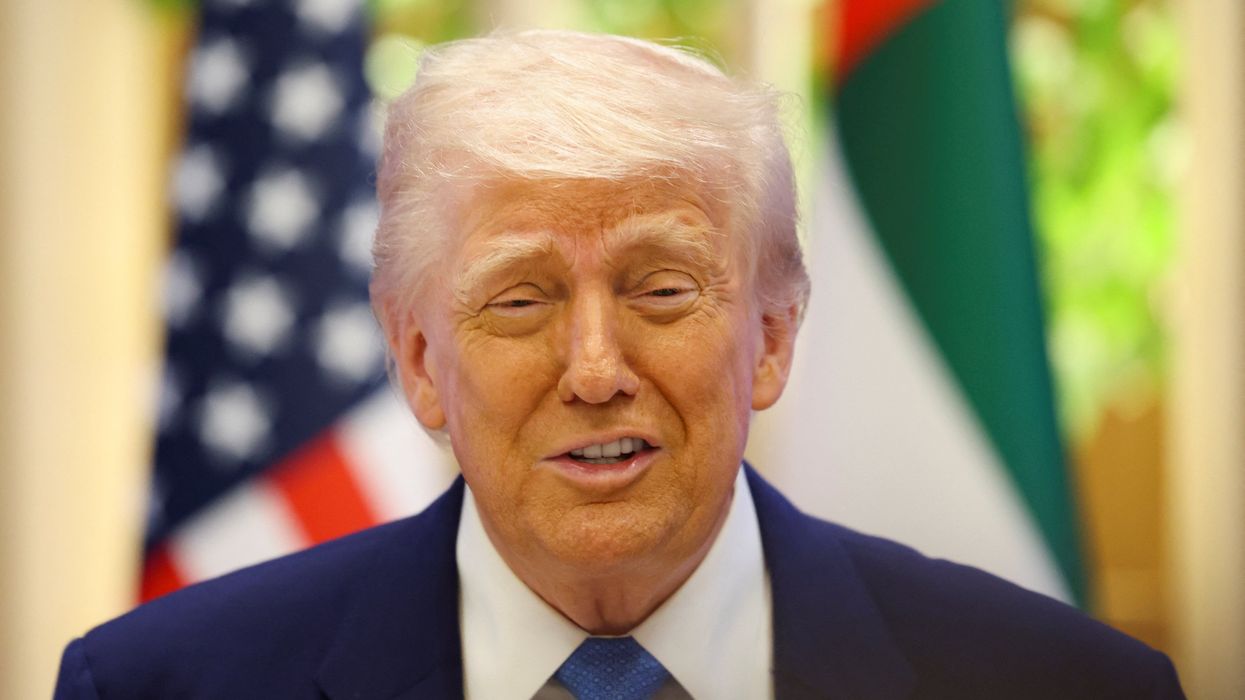In his Sunday column for MSNBC, the outlet's newsletter editor Ryan Teague Beckwith traced the enduring “daddy” metaphor in presidents — from George Washington, divinely dubbed “the father of our country,” to Barack Obama, who wrote about the father he barely knew. The nickname is shorthand for deeper issues, Beckwith writes, “unsettling,” with “troubling” implications for democracy when applied to President Donald Trump.
"America has long had daddy issues with the presidency, but now they’re threatening to undermine democracy," he wrote.
Beckwith highlights how Trump’s own self-image taps into the role of America’s surrogate patriarch. After Trump took over his father Fred’s real estate empire and fathered five children, he and his loyalists began positioning him as “Daddy” for the nation. At Trump’s inauguration, Kid Rock modified lyrics to announce “daddy’s home.”
READ MORE: Texas 'Republicans are sweating through their solid gold Trump pins' — here's why
Politicians and media figures chimed in: Rep. Byron Donalds (R-Fla.) said “Daddy’s back,” Rep. Lauren Boebert (R-CO) tweeted “Daddy’s home,” and MAGA influencer Charlie Kirk posted “Dad is home.”
In June, the rhetoric escalated when NATO chief Mark Rutte quipped during a diplomatic exchange: “Daddy has to sometimes use strong language,” a phrase Trump co-opted by affectionately telling Rutte, “Daddy, you’re my daddy,” and embracing it. The White House then posted a video set to Usher’s “Hey Daddy (Daddy’s Home)” and campaign T‑shirts emblazoned “DADDY” under Trump’s face/
Beckwith warned in the op-ed that beneath the lighthearted nickname lies a “darker undercurrent.” He cited examples like Mel Gibson calling Trump’s arrival “like Daddy’s arrived, and he’s taking his belt off,” and Tucker Carlson likening the United States to a misbehaving teen awaiting a “vigorous spanking” from a stern father.
To explain this, Beckwith turns to political theory, referencing cognitive linguist George Lakoff’s 1996 Moral Politics, where Lakoff outlines the “strict father” vs. “nurturant parent” models. In this frame, the conservative “strict father” enforces discipline, defends against threats, demands obedience.
READ MORE: 'Like an open fire hose': Trump ripped as cracks show in MAGA media
The journalist argued that that’s exactly how Trump governs: building walls, slashing safety nets, and expecting compliance/
Beckwith further noted that the incentives behind the rhetoric: officials curry favor by playing along, but doing so bolsters Trump’s damaging worldview.
He argued that simply rejecting the nickname — posting “Trump is NOT my daddy” — can backfire, as it spreads the metaphor further. Instead, drawing on Lakoff, Beckwith suggested that pushing back requires “shifting the frame” entirely.
But that’s a tall order; the “daddy” paradigm is deeply rooted in American political culture, he observed.


